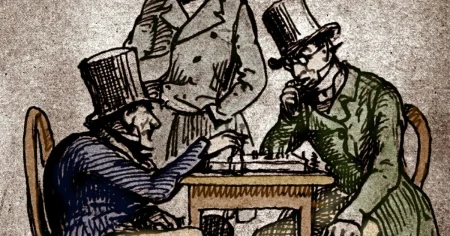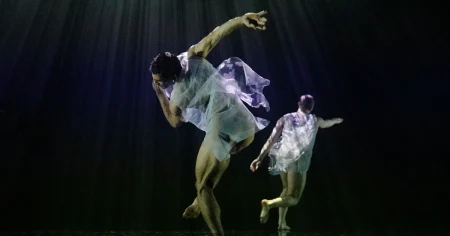The inauguration of the 47th President of the United States cast a long shadow over various sectors, including the film industry, with his promises to complicate the lives of marginalized groups such as transgender individuals, immigrants, and environmental activists. His administration’s disregard for equality and diversity initiatives further fueled concerns about the potential impact on Hollywood. While tech giants scrambled to align themselves with the new power structure, the question of Hollywood’s resilience remained. Despite the anxieties, pockets of resistance emerged, particularly within the artistic community. The Academy Awards, a significant platform for cultural expression, became a stage for subtle yet powerful dissent.
The Oscar nominations themselves served as a form of artistic protest. Ali Abbasi’s ”The Apprentice,” featuring Sebastian Stan’s unflattering portrayal of a young Donald Trump and Jeremy Strong’s depiction of the toxic Trump mentor Roy Cohn, received recognition. This bold move signaled that the Academy was not afraid to engage with politically charged narratives, even those directly critical of the sitting president. The nomination of the trans musical ”Emilia Pérez” further intensified this message of defiance. The film, centered around a drug lord undergoing gender confirmation surgery and emerging as a fervent humanist, presented a stark contrast to the administration’s rhetoric and policies. The potential recognition of Karla Sofía Gascón, the magnificent Spanish trans woman in the title role, for Best Actress, added another layer of significance, showcasing the power of representation and challenging traditional notions of gender in cinema.
The unexpected inclusion of Edward Berger’s papal thriller ”Conclave” further contributed to this subtle act of resistance. While avoiding spoilers, Cardinal Lawrence’s (Ralph Fiennes) eloquent speech about doubt as a prerequisite for faith resonated with those questioning the prevailing political climate. This seemingly unrelated narrative provided a space for reflection on the importance of critical thinking and intellectual honesty, values seemingly at odds with the new administration’s approach. The film’s exploration of faith and doubt offered a timely commentary on the broader societal context.
Another nominated film, ”The Brutalist,” amplified this resistance by highlighting the inhumane and ahistorical aspects of the president’s vision for the future. The film, centered around a Jewish exile architect (Adrien Brody) finding refuge in America after fleeing war-torn Europe, served as a poignant reminder of the nation’s history as a haven for immigrants and the vital contributions they have made to American society. This narrative directly countered the administration’s anti-immigrant sentiments and policies, emphasizing the debt of gratitude the US owes to those who sought refuge within its borders. The film’s focus on a Jewish protagonist also subtly underscored the importance of remembering the lessons of the Holocaust, a period of history often downplayed or distorted by the new administration.
The collective message emanating from these nominated films served as a counter-narrative to the prevailing political discourse. They highlighted the importance of inclusivity, diversity, and empathy, values seemingly under attack by the new administration. Hollywood, through its artistic expression, demonstrated its potential to act as a powerful force of resistance, using storytelling to challenge dominant narratives and offer alternative perspectives. These films became symbolic representations of hope and resilience in a time of uncertainty, showcasing the power of art to inspire, provoke, and ultimately, effect change.
In contrast to the administration’s divisive rhetoric and policies, Hollywood, through these Oscar-nominated films, reaffirmed its commitment to the American dream, a dream inclusive of immigrants, transgender individuals, and all those marginalized by the new political order. The film industry, at least for the moment, refused to relinquish the hope and optimism that had long defined the American spirit. This act of artistic defiance served as a powerful reminder of the importance of protecting freedom of expression and using art as a tool for social commentary and change. While the future remained uncertain, these films provided a beacon of hope, suggesting that the fight for a more just and equitable society would continue, even in the face of adversity.














